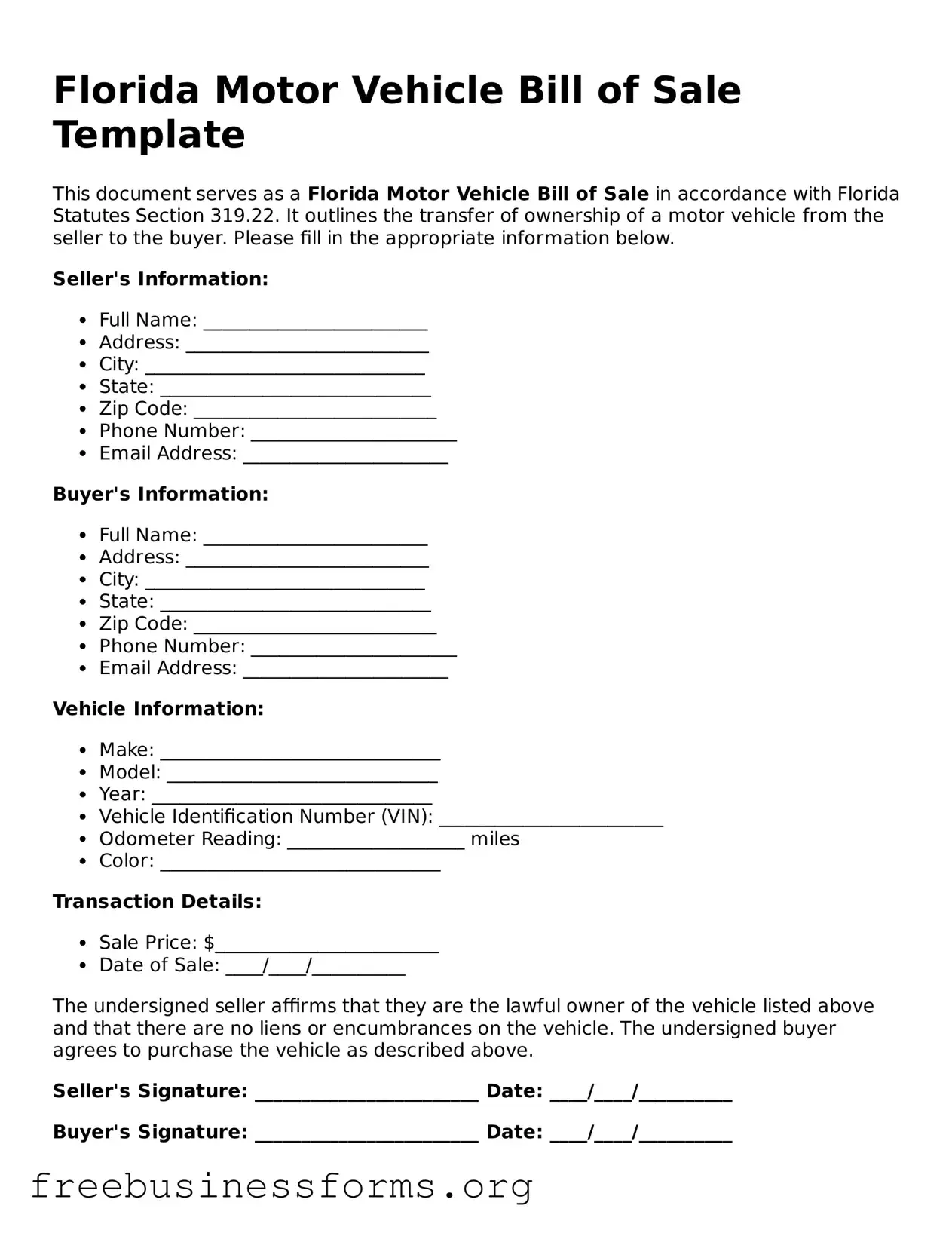Blank Motor Vehicle Bill of Sale Template for Florida
The Florida Motor Vehicle Bill of Sale form is a crucial document used to record the transfer of ownership for a motor vehicle in Florida. This form provides essential details about the transaction, including the buyer, seller, and vehicle information. Understanding how to properly complete this form can streamline the buying or selling process and ensure compliance with state regulations.
Open Form Here

Blank Motor Vehicle Bill of Sale Template for Florida
Open Form Here

Open Form Here
or
↓ PDF File
Quickly complete this form online
Complete your Motor Vehicle Bill of Sale online quickly — edit, save, download.